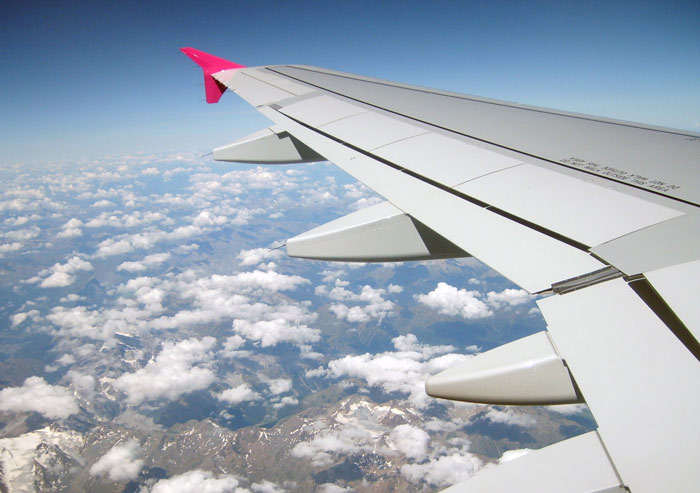
Do you often fly by plane and feel exhausted after each trip? We have collected 10 practical tips that will make your next flight less stressful and more comfortable.
It’s hard to disagree that the best part of the flight is its end. Kids’ squealing, the lack of space for your legs, turbulence – all of this makes the flight unpleasant rather than luxurious, as we have previously thought.
In this article, we have gathered 10 tips to help you make the next flight by plane more comfortable.
1. Force yourself to move
Do you know what recent studies have revealed? A total of five flights within three months increase the likelihood of blood clots in vessels by three times compared with two or three flights during the same period. The likelihood of thrombus formation is 70 times higher in the people who spend about 12 hours in a plane rather than those whose flight lasts only 4 hours?
There is another unpleasant thing, which is called “stagnant hypoxia.” This is nothing but a lack of oxygen caused by staying in an inactive state for a long time. Blood accumulates in the legs and does not reach the upper part of the body.
To prevent unwanted consequences, it is recommended to get up and move in the passage as much as possible. But what if turbulence or other factors prevent you from standing up? In this case, wiggle your toes and pull the feet up. In some way it will help to speed up blood in your veins.
2. Beware of cold and viruses
The air in the plane is refreshed 20 times per hour (in the subway, it changes only four times per hour). But even fresh air does not protect from the virus 100%, if you are sitting close to a sick person or get cold because you cannot bear low temperatures in the plane.
Take some big scarf or cape to the plane, which you can wrap yourself in, if necessary. In an extreme case, these things can be rolled up and used as a pillow.
And one more recommendation: always have antiseptics with you to reduce the risk of catching an unwanted infection.
3. Avoid caffeine
Avoid coffee and other caffeinated drinks. This is especially important if you are going to have a night flight or cross time zones.
The effect of caffeine lasts from 2 to 6 hours after taking it. Caffeine interferes with sleep, which makes a person irritable and nervous. But this is not exactly what you need during the flight.
4. Choose a place where turbulence will influence you less considerably
Not all the seats in the plane are equally influenced by turbulence. Experts believe that the seats located above the wings or close to the center of gravity of the aircraft can significantly reduce the effects of turbulence, whereas in the rear part of the plane it will be felt much stronger.
5. Try to book a seat with much space for legs
Sufficient space for your legs during the flight is one of the major factors influencing satisfaction with the flight. The average distance between the seats on the plane is 780-810 mm.
There are websites that show the level of comfort of the selected seat. Based on these data, you can determine which flight can offer you the most comfortable conditions for your budget.
6. Drink plenty of water
The World Health Organization has calculated that the amount of water for humans is 30 ml per 1 kg of body weight per day. But still it is worth considering the fact that planes are characterized by low humidity and dry air, which cause dryness of the skin and mucous membranes, coughing, and discomfort in the eyes. Therefore, you need to drink more onboard a plane. Coffee, tea and other drinks have a diuretic effect, which contributes to dehydration.
7. Choose a seat next to a window
A quarter of all travelers by plane respond that the view from the window of the aircraft is another factor that affects the overall impression of the flight.
8. Take everything you need for a good night’s sleep
Good noise-reducing headphones can mute the children’s screams in the aircraft, but they will not help you hide from the light. So do not be lazy to take a sleeping mask. Select a mask with special pads that do not let the mask fit tightly to the eyes. This is needed to ensure that the bandage is not pressed to the eyelids and the eyes can freely move during REM sleep. This will allow you to relax better.
9. Prepare to jet lag in advance
Jet lag interferes with the usual daily rhythm. The best thing that can be offered in this case is to prepare for it in advance. For example, imagine that you are in the time zone where you are planning to get. Eat, drink, and sleep according to the time zone of your destination.
10. Avoid hunger
I think, it would not be new for you that the food on the plane is far from ideal, to put it mildly. Unfortunately, little can be done about it, unless you take a light snack with you.
What should you do after a long journey or after another flight? The stomach reminds you of hunger, and you want to eat so much that you fail to endure it any longer.
In this case, there is one good advice. To get food on board faster, give up meat dishes. For example, order vegetarian meals or any special meal. Typically, such food is brought first, besides it does not cost extra money.






